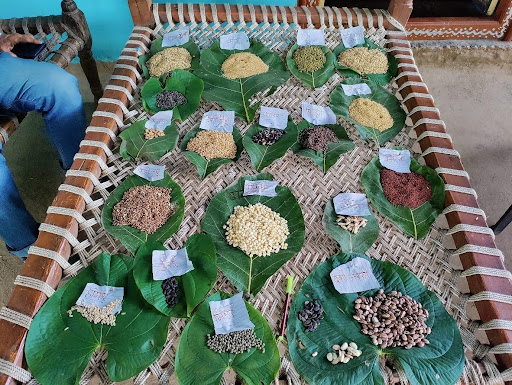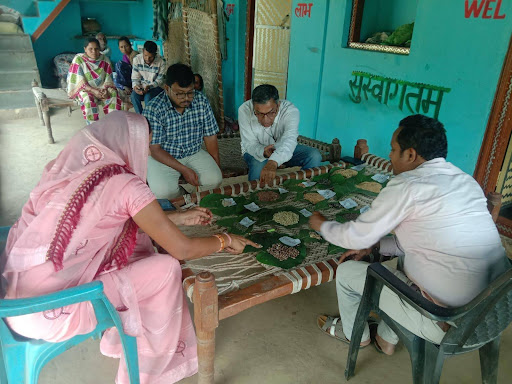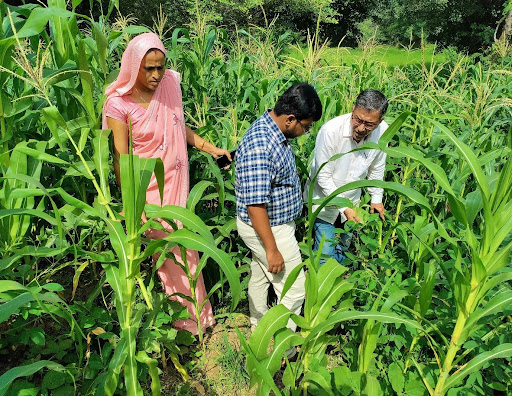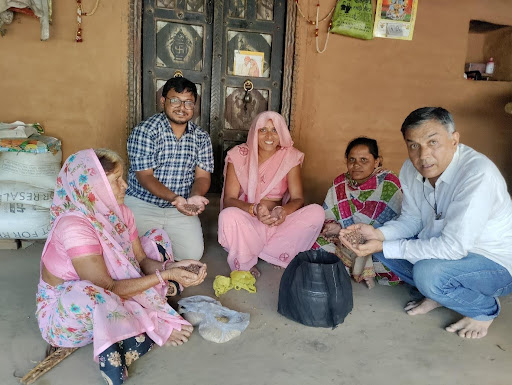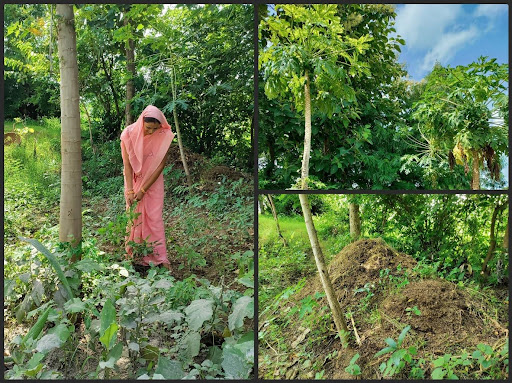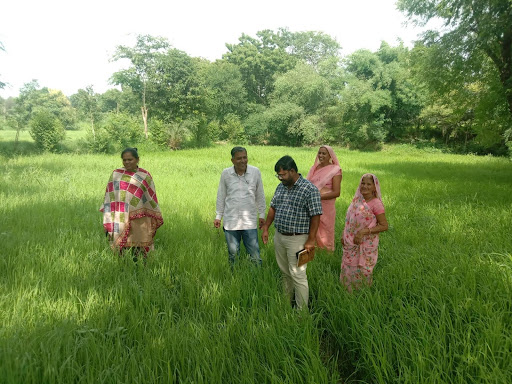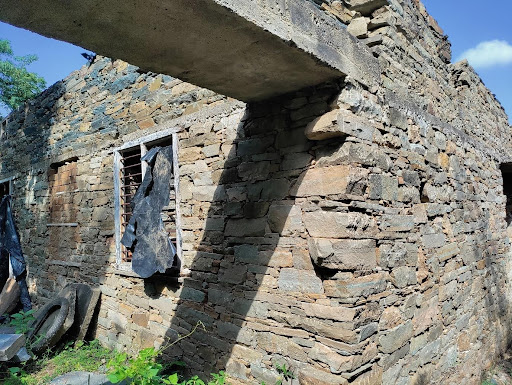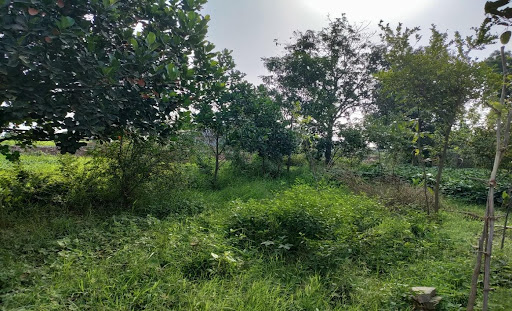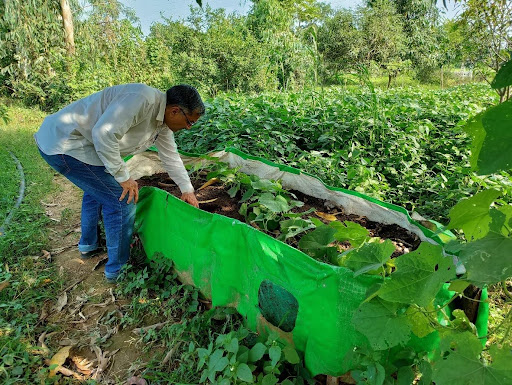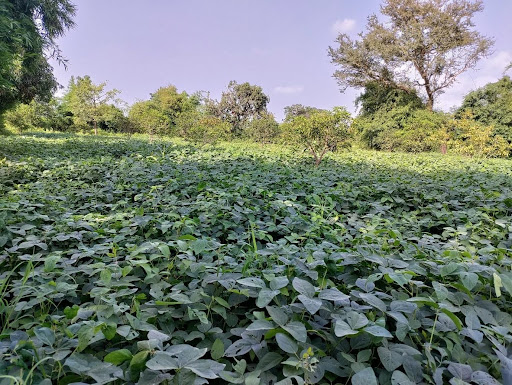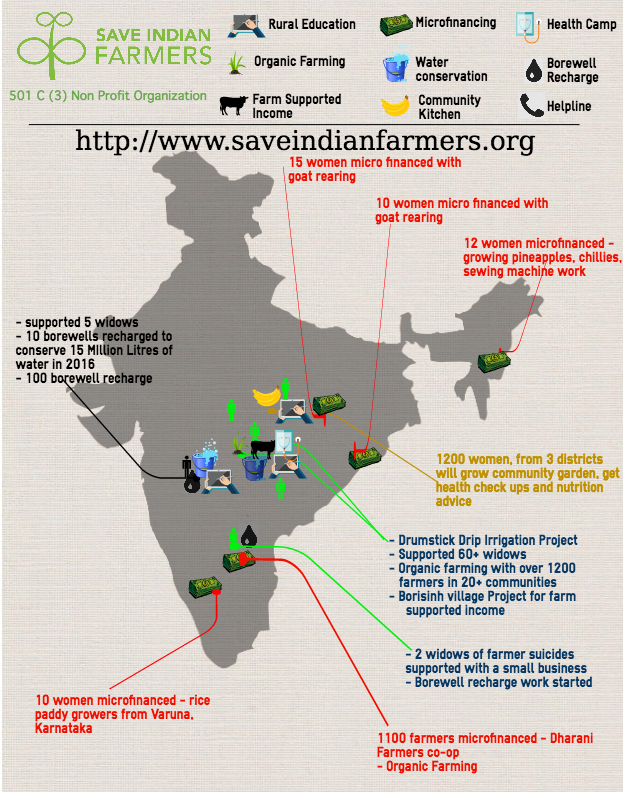Action-Programme Name- Tracking the native seeds given to the farmers of Sera Nangla & Nana- Mukhiya and visiting their fields.
To know more about this SIF Project, follow the link – Beej Swaraj
Name of Co-Project Institute- Waghdara Organization,Banswara (Rajasthan)
Sera Nangla & Nana- Background of Mukhiya and its farmers
Sera Nagla and Nana-Mukhiya are a small village/hamlet in Anandpuri tehsil of Banswara district in Rajasthan. It comes under Sera Nagla Panchayat and Nana-Mukhiya falls under Nana-Mukhiya Gram Panchayat. Both villages are located in Udaipur division. These villages are 53 km west of district headquarters Banswara, 6 km from Anand Puri and 501 km from state capital Jaipur. The local language of the local population of Sera Nagla and Nana-Mukhiya is Hindi. Sera Nagla village has a total population of 1462 and the number of houses is 287. Female population is 49.3%, literacy rate of the village is 35.5% and female literacy rate is 13.7%.
The farmers of this village take new hybrid seeds from agricultural service vendors every year. These hybrid seeds cannot be used again and again, if used, they do not get production. This causes a lot of economic and mental loss to the farmers. For that, the indigenous wan/traditional wan can be used again and again every year. Also, the cost of the farmers is reduced. This saves money and the production of crops increases due to the planting of indigenous seeds and proper storage and protection. This is the aim of this project that the farmer should Conservation of indigenous seeds of the year by storing them from the current year’s crop.
- During the visit, discussions were held on seed collection and seed conservation done by Waghdara org. in the vicinity of Sera-Nangal and Nanamukhia gram panchayats of Banswara district. During this meeting, Kantadevi of Sera Nangal has spread awareness about the conservation and conservation of indigenous seeds in 40 nearby hamlets through Waghdara organization and Save Indian Farmers.
- At least 20 male and female farmers have been cultivating indigenous seeds for the last two years (since 2020).
Natural native/desi seed storage and conservation practices
- Kantadevi, a farmer woman from Sera Nangal village, and Mr. Panchabhai Patel, Head of Agriculture Department of Waghdara organization, giving information about the Purna Beej Swaraj Project.
- At Sera Nangal, women farmers Kantadevi and Mr. Patel of Waghdara organization during a mixed-crop survey of farmers’ fields.
- Airtight seeds are protected by adding black cloth to the household stem
- Mr. Panchabhai Patel, Head of Agriculture Department of Waghdara Org, Mr. Prafulla Sutar of Save Indian Farmers Foundation, Kantadevi, Farmer of Sera Nangal village, Kankudevi etc. were present in the visit to Beej Swaraj from the right.
- In the first stage, Kantadevi and her colleagues informed 5-5 women about Beej Swaraj in each wadi-vasta and prepared them for seed collection and conservation.
- The farmers here still cultivate rain water. Under the guidance of Waghdara org., the mixed crop system has been adopted by the farmers here. These mixed crops include maize, tur, sesame, chawal, urad, ambadi, okra, kachra, dangra.
- All these mixed crops are seed-preserved by the farmers throughout the year, they sow this year. This is saving them the cost of hybrid seeds every year.
Nutritious kitchen garden
- This kitchen garden provides the complete nutrients needed by the family/body. This is done by farmers in 20 x 20 feet.
- In this, papaya, sitaphal, coconut, chili, tomato, eggplant, sugarcane, guava, amla, mango, lemon etc. are planted in it.
- Inspecting the Kitchen Garden
- Inspecting the indigenous basmati rice crop
Wadi type model
In this Wadi type model, wild trees are planted on all sides and fruit trees are planted in the center. Fruit trees include mango (including three types of mango – Langda, Malika, Dasheri), Guava (Lucknow 49 varieties), Lemon, Cashew, Eucalyptus, Teak trees in the wild.
At present, full soyabean has been planted in the field of Ramlal Maharaj in Nana-Mukhiya. After this soyabean, it is planned to take wheat and turmeric in mixed crops. The seeds of all these crops are available with them so the farmer does not have time to buy the seeds from the market.Also all these seeds are organic. Therefore, the produce is available to the farmers in good quantity.
All of these crops are processed and prepared by NADEP as vermicompost. Almost every house in Rajasthan is built of the stone available there. (Natural Resource Management)
List of farmers who have stored native seeds (visited):
| Sr.no | Farmer’s name | Address | Area(acre) |
| 1 | Kantadevi MukeshChandra | Sera Nagla | 5 |
| 2 | Kanku Devi Kamadamore | Sera Nagla | 7 |
| 3 | Sagittarius Devi Kanhaiyalal | Sera Nagla | 10 |
| 4 | Savitadevi Bapulal | Sera Nagla | 2 |
| 5 | Lakshmidevi Sardar | Sera Nagla | 5 |
| 6 | Kalidevi Hardar | Sera Nagla | 10 |
| 7 | Ramlal Maharaj | Nana-Bhukia | 12 |
Author
Mr. Prafulla Sutar
Operations Manager, Save Indian Farmers Foundation
E-mail: prafulla@saveindianfarmers.org

